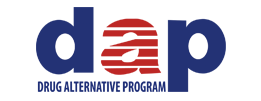
Recovery isn’t a finish line but a lifelong continuum of growth. For those rebuilding after addiction, personal development often feels both necessary and exhausting. True progress doesn’t come from intensity or constant effort—it grows from structure, rhythm, and self-alignment. Sustainable recovery means creating steady, repeatable habits that nurture your energy and purpose, turning daily choices into lasting transformation that strengthens both resilience and self-trust over time.
The Gist
Sustainable personal development means progress without burnout. Build consistency through small, meaningful actions, align growth goals with your recovery values, and design systems — not spurts — that carry you forward.
Learning Through Purpose and Flexibility
Rebuilding life after addiction often involves reclaiming agency — the ability to make choices rooted in clarity and purpose. Structured learning can play a key role here.
For example, exploring cybersecurity degree program options can help develop focus, responsibility, and discipline while opening doors to meaningful work. Online programs are flexible and allow you to study at your own pace, strengthening self-management skills that mirror the routines of recovery.
The Sustainable Growth Framework
1. Anchor Your Development in Identity
Know who you are becoming before deciding what to pursue. Recovery reshapes identity — use that as your compass.
2. Design for Stability, Not Stimulation
Quick wins can feel good, but lasting transformation happens through stable, repeated behaviors.
3. Track Energy, Not Just Progress
Journal how activities affect your mental and emotional energy. Energy is the leading indicator of sustainability.
4. Integrate Feedback Loops
Use reflection questions, mentors, or therapy check-ins to adapt — recovery is a learning system, not a straight path.
Building Sustainable Personal Growth
|
Checkpoint |
Description |
Example Practice |
|
🧭 Purpose Alignment |
Each goal aligns with your recovery values |
“I want to improve health so I can reconnect with my kids.” |
|
🧱 Small Structures |
Daily routines instead of massive goals |
15 minutes of journaling or meditation |
|
🔄 Consistency Loop |
Weekly reviews for reflection |
Check your progress every Sunday |
|
🌱 Adaptive Mindset |
Treat setbacks as data, not failure |
Analyze triggers instead of judging yourself |
|
💬 Connection |
Stay accountable through community |
Join a local peer growth circle |
How-To: Maintain Long-Term Momentum
- Create Micro-Goals
- Divide long-term aspirations into tasks you can complete in under 30 minutes.
- Example: Instead of “Get fit,” start with “Stretch for 5 minutes daily.”
- Schedule Rest as a Discipline
-
- Recovery isn’t a sprint. Protect downtime like any other commitment.
- Try digital rest or journaling retreats.
- Automate Support Systems
- Build Adaptive Learning Paths
-
- Take self-paced online courses on Coursera or FutureLearn.
- Focus on skills that improve decision-making and resilience.
- Measure Meaning, Not Perfection
-
- Reflect on how each effort changes your sense of purpose and peace, not just results.
Table: Recovery-Integrated Growth Cycle
|
Stage |
Focus |
Example Tools |
|
Awareness |
Identify triggers and growth desires |
Therapy, journaling |
|
Learning |
Build skill or knowledge base |
Online courses, mentorship |
|
Practice |
Apply new habits daily |
Habit trackers, planners |
|
Reflection |
Assess energy and progress |
Recovery journaling |
|
Integration |
Expand new identity |
Service work, community engagement |
FAQ
Q1: How can I avoid burnout during recovery-focused growth?
Prioritize consistency over intensity. Use rest as part of your progress plan.
Q2: What if I relapse or lose motivation?
Treat it as data, not defeat. Review what systems failed, and adjust.
Q3: Should I focus on career or emotional healing first?
Both can coexist. Emotional stability amplifies career growth — and vice versa.
Q4: How do I keep myself accountable?
Join peer accountability programs or online recovery communities such as SMART Recovery.
Q5: What’s a sign that my growth is sustainable?
You feel steady instead of stretched. Momentum continues even on low-energy days.
Glossary
Micro-goal: A small, achievable action that contributes to a larger goal.
Energy Tracking: Recording how activities affect physical and emotional stamina.
Adaptive Loop: A feedback mechanism that helps you refine your goals over time.
Recovery Architecture: The structured environment you design to support long-term sobriety and growth.
Featured Resource
If you’re rebuilding your career path while maintaining recovery routines, explore LinkedIn Learning for short, skill-based courses that fit into micro-goal frameworks. Its structured pacing aligns well with the focus and self-management strategies of sustainable growth.
Sustainable personal development isn’t driven by constant motivation — it’s built by designing environments where progress feels natural. Recovery flourishes through rhythm, structure, and purpose. When your growth aligns with your values, energy, and authentic identity, momentum becomes self-sustaining. Instead of forcing change, you create a life architecture that naturally supports consistency, balance, and long-term transformation every single day.
